In the first of a new series of blogs for CREU, University of Birmingham doctoral researcher Helen Evans shares her perspective on the recent launch of our report ‘Pathways to Inclusion’, which examines the work of the Trinity Centre for People with Intellectual Disabilities (TCPID) in Dublin, and explores the feasibility of adopting their model of inclusion to the Higher Education in Northern Ireland. 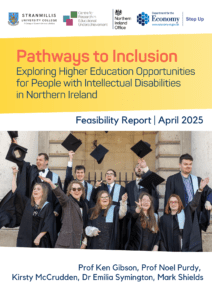
On the 3rd April this year, I was excited and privileged to attend the launch event of Stranmillis University College’s ‘Pathways to Inclusion’ Feasibility Report (Gibson et al., 2025).
Funded by the Northern Ireland Office, as part of the Step-Up Programme, the study set out to examine the feasibility of emulating the model of inclusive Higher Education provision developed by Trinity Centre for People with Intellectual Disabilities (TCPID), based at Trinity College Dublin.
TCPID’s programme, Arts, Science and Inclusive Applied Practice (ASAIP) runs over two years and is designed for students with learning / intellectual disabilities to experience university life whilst gaining Level 5 accreditation (roughly Level 3 UK equivalent). Applying a hybrid model of inclusion, TCPID students complete specially developed modules such as Disability Rights, Information Technology and Introduction to Business, yet they are also welcome to attend co-learning modules alongside Trinity’s undergraduates, and like Trinity’s undergraduates, make use of the university’s facilities, such as the library and sports centre.
Hailing from the UK, I had only become familiar with TCPID through researching Students as Researchers approaches to Student Voice and finding Dr John Kubiak’s (2015) article recounting his own PhD study. John’s research involved a group of university students with intellectual disabilities from TCPID who were co-researching how they learn best, and their findings were later used to inform teacher-training programmes at Trinity. I was intrigued, not only by the study, but by the fact that a university had a programme for this group of learners. This was exciting! Coming from a background of teaching similar cohorts in specialist further education colleges in the UK, I was so filled with curiosity that I emailed John, and my relationship with TCPID grew from there.
The more I learned about the programme, the more I felt that the UK should be joining in the conversation and not relying purely on specialist further education colleges to ‘tick that box’; some students need / want to transition into higher education after college. Why shouldn’t they have the same opportunities as their siblings?
Having built up a strong relationship with Trinity for over 15 years, the report authors were, like myself, familiar with TCPID’s work and the positive outcomes facilitated there. They approached the centre, attempting to answer similar questions to those I had in mind for a potential post-doctoral study, such as: what exactly does TCPID offer, and could we emulate the programme within the UK’s policy landscape? In fact, that was the purpose of my own recent visit across the water – to begin to observe and discuss inclusive practices at TCPID, and to start building upon relationships which could support future collaboration and study.
So, it felt incredibly serendipitous, on my arrival, to not only hear about Stranmillis’ feasibility report, but to receive an extended invite to attend the report’s launch event. I travelled up the beautiful west coast by train with several key associates from TCPID to hear directly from the report’s authors and attend the concluding panel discussion. The welcome was warm, and the food was delicious, but it was the vision that struck me most heartily.
It was promising to see delegates from the Department for the Economy (NI), i.e potential funders, as well as key university stakeholders, at the event. I was taken by the mixture of determination, confidence and hope radiating from those presenting the report’s key findings – that it would be ‘incontestably feasible, with no insurmountable challenges identified’ (Gibson et al., 2025, p.3) to implement an inclusive Higher Education programme in Northern Ireland. Trinity’s Dr. Conor McGuckin stated, “It is not a service we are talking about providing here, it is a human right!” He concluded with an appeal to funders to read the report, trust in its findings, and trust in the experience and expertise of all collaborators and supporters in bringing future success to the project. It was in that instant I realised that this could never be the solo (post-doctoral) project I had first envisaged it as; Stranmillis’ feasibility study required a team of five!
Inspired by Wales’ new policy landscape within the tertiary sector, I had been hoping to attempt something similar (and still may), but, looking around the room, I appreciated that my first task must be to build a strong network of like-minded people around me, such as the fantastic teams I observed at both TCPID and Stranmillis.
The report’s launch event has, in its way, launched me – into action. I stayed up north, with relatives, for the weekend after the launch event, taking in the peninsula air and processing the abundance of information, ideas and feelings set in motion within me.
On returning home, I am excited for the future and feel empowered to start conversations here in Wales. I’m, naturally, hoping that the team at Stranmillis will get the ‘go-ahead’ for their proposed programme, and that they will be able to clear, and lead, the way so that others may follow…

References
Gibson, K., Purdy, N., McCrudden, K., Symington, E. & Shields, M. (2025). Pathways to Inclusion: Exploring Higher Education Opportunities for People with Intellectual Disabilities in Northern Ireland. Belfast: Centre for Research in Educational Underachievement, Stranmillis University College.
Kubiak, J. (2015) ‘Using ‘voice’ to understand what college students with intellectual disabilities say about the teaching and learning process’, Journal of Research in Special Educational Needs, 17 (1), pp.41-48. https://doi.org/10.1111/1471-3802.12098


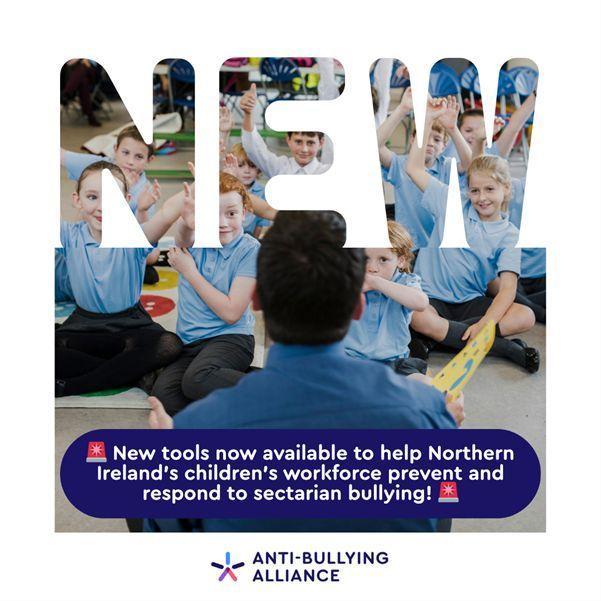
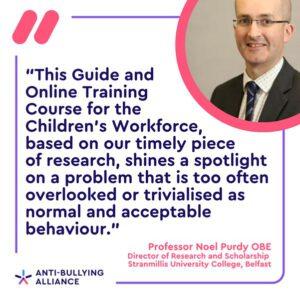 Research undertaken by Stranmillis University College is at the heart of a vital new resource to address sectarian bullying among children and young people in Northern Ireland, launched this month by the Anti-Bullying Alliance (ABA). The ‘All Together’ guide for the children’s workforce, research report and free CPD-certified online training course, draws on work conducted by the Centre for Research in Educational Underachievement (CREU) in partnership with the ABA.
Research undertaken by Stranmillis University College is at the heart of a vital new resource to address sectarian bullying among children and young people in Northern Ireland, launched this month by the Anti-Bullying Alliance (ABA). The ‘All Together’ guide for the children’s workforce, research report and free CPD-certified online training course, draws on work conducted by the Centre for Research in Educational Underachievement (CREU) in partnership with the ABA.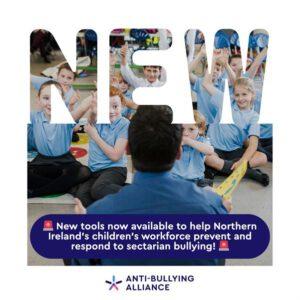
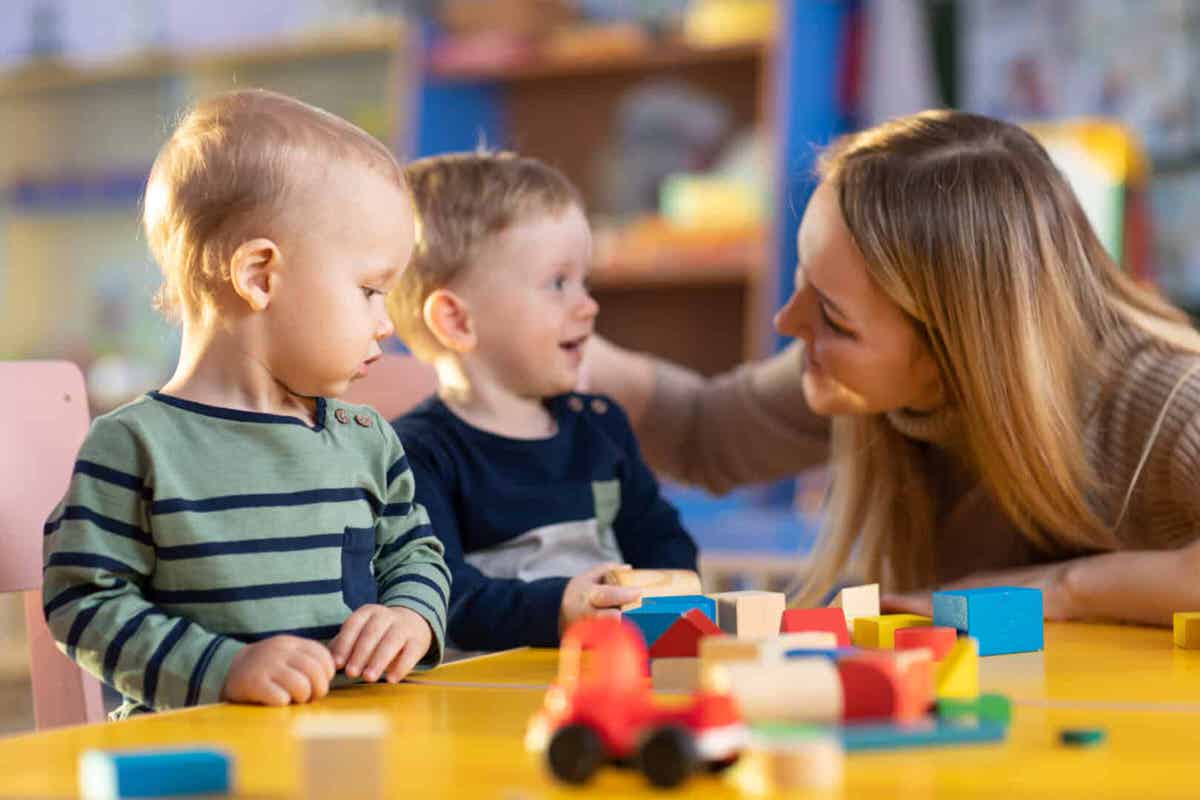


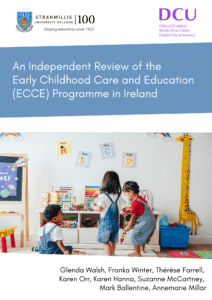 A major independent review of the Republic of Ireland’s Early Childhood Education and Care (ECCE) programme, led by Stranmillis University College’s Head of Early Years, Dr Glenda Walsh, was published this week by the Irish government’s Department of Children, Equality, Disability, Integration and Youth (DCEDIY).
A major independent review of the Republic of Ireland’s Early Childhood Education and Care (ECCE) programme, led by Stranmillis University College’s Head of Early Years, Dr Glenda Walsh, was published this week by the Irish government’s Department of Children, Equality, Disability, Integration and Youth (DCEDIY).
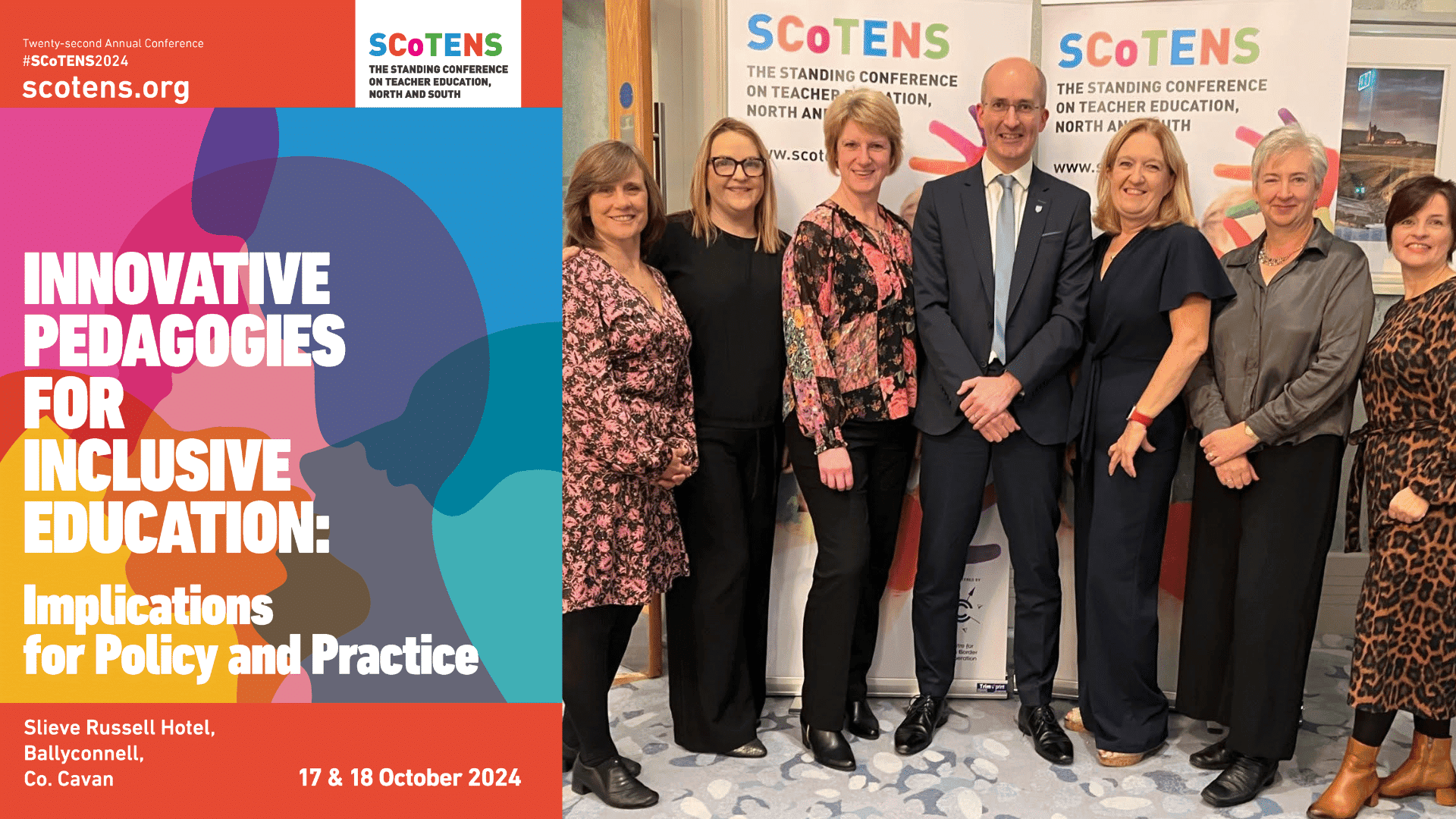
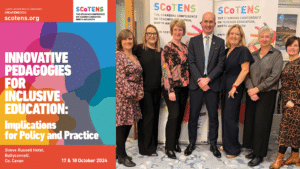

 On Saturday 5th October, Stranmillis University College was delighted to welcome the first ever cohort of Doctoral students to the campus to meet their fellow students, their lecturing team and senior staff from across the Stran community.
On Saturday 5th October, Stranmillis University College was delighted to welcome the first ever cohort of Doctoral students to the campus to meet their fellow students, their lecturing team and senior staff from across the Stran community.